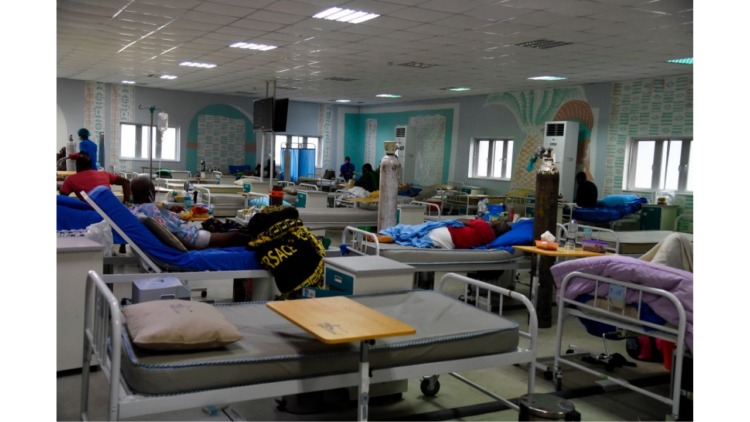“Minister Salako Advocates for Stronger Healthcare System as U.S. Foreign Aid Faces Cuts”
by Admin ·
 The Federal Ministry of Health has described a recent executive order by former U.S. President Donald Trump, which is likely to reduce foreign aid to developing nations, as a wake-up call for Nigeria to strengthen its healthcare system and reduce its reliance on international funding.
The Federal Ministry of Health has described a recent executive order by former U.S. President Donald Trump, which is likely to reduce foreign aid to developing nations, as a wake-up call for Nigeria to strengthen its healthcare system and reduce its reliance on international funding.
Dr. Iziaq Adekunle Salako, the Minister of State for Health and Social Welfare, made this statement during an oversight visit to the Federal Medical Centre (FMC) Ebute Metta, Lagos. He stressed the need for strategic planning and domestic resource mobilisation to sustain essential health programs, particularly in light of the expected reductions in U.S. and other international aid.
“The executive orders being reviewed in the U.S. suggest that aid and grants to developing countries like Nigeria are likely to decrease. This is a wake-up call for us to rethink our strategies, exert ourselves, and work toward a more self-sufficient healthcare system,” Salako remarked.
The Minister revealed that the government is actively engaging with key stakeholders, including international bodies such as the World Health Organization (WHO), the UN Global Platform (UNGP), and the Global Forum, to explore collaborative solutions and expert recommendations for Nigeria’s healthcare challenges.
Salako also highlighted the potential impact of these cuts on critical health programs such as HIV treatment, which has historically been funded by the U.S. He underscored the urgency of finding alternative revenue streams, including exploring crowdfunding options and increasing government funding for healthcare initiatives. “It is imperative that we diversify our funding sources to avoid a crisis,” he added.
The Minister further emphasized the importance of continued global cooperation. “The world is a global village. What happens in one country affects others. America cannot operate alone, just as Nigeria or any other country cannot. I believe reason will prevail, and the U.S. government will maintain its essential role in the global community,” Salako concluded, adding that this situation presents an opportunity for Nigeria to build a more independent and resilient healthcare system.
During the visit to FMC Ebute Metta, Salako commended the facility for its efficient use of space, digital innovations, and high-quality medical equipment. He particularly praised the hospital’s electronic medical record (EMR) system, which he called a potential model for other healthcare facilities across Nigeria. The minister also recognized the hospital’s transition to a paperless system as a significant step toward reducing medical tourism and improving overall healthcare delivery.
On the federal government’s efforts to improve cancer treatment, Salako highlighted initiatives such as the Cancer Health Fund and the Catastrophic Health Fund, which supports patients with severe conditions, including kidney dialysis. Thanks to government intervention, the cost of dialysis has been reduced from ₦50,000 per session to ₦12,000. Expanding cancer treatment facilities and raising awareness remain key priorities for the government.
Dr. Adedamola Dada, the Medical Director of FMC Ebute Metta, shared his reflections on the hospital’s impressive growth, noting that under his leadership, the hospital had expanded from a modest 72-bed facility to a 450-bed hospital. He credited the transformation to careful planning and resource utilisation, which also led to a significant increase in annual patient load and the expansion of training programs.
Dada also highlighted the hospital’s achievement of Level 4 certification under the SafeCare Assessment Programme, making it the first public health institution in Nigeria to attain such recognition.
While acknowledging ongoing concerns from healthcare workers regarding staff welfare and remuneration, Dada emphasized the importance of improving the overall quality of life for healthcare professionals. He expressed hope that ongoing negotiations between unions and the federal government would lead to better conditions for healthcare workers across the country.













